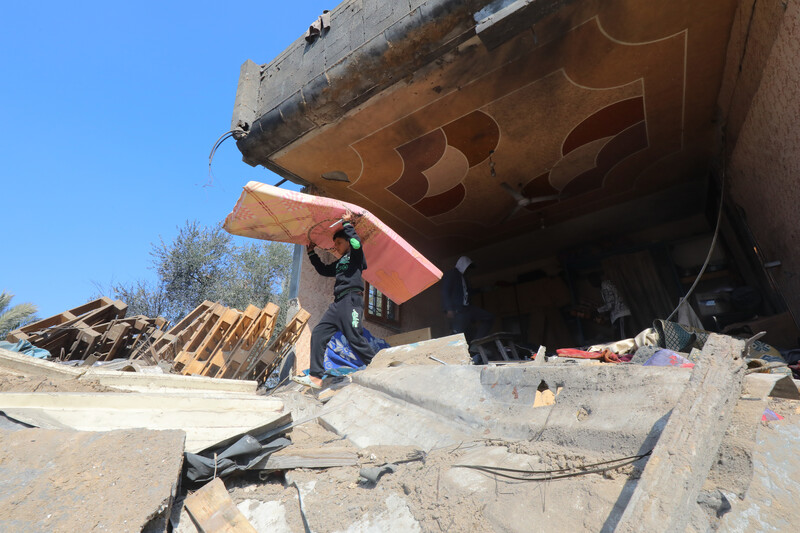The Electronic Intifada 8 February 2024

Israel’s extreme violence has poisoned the environment in Gaza.
APA imagesFinding clean air in Gaza has become nearly impossible.
Parents are worried that toxic substances emitted by Israel’s weapons are causing an increase in respiratory complaints among children.
Alaa is a mother, who was recently awoken in the middle of the night by her daughter Hala, 8.
Hala had a fever and was having trouble breathing.
She was brought to northern Gaza’s Kamal Adwan hospital, which is operating at a reduced capacity after being attacked by Israeli forces during December. Its staff confirmed that Hala’s lungs had been damaged.
Initially, Hala was prescribed antibiotics and an inhaler.
A few days later, her condition worsened and she was transferred to the hospital’s intensive care unit. Attempts to save her by providing oxygen were not successful.
Tragically, Hala died.
Alaa, Hala’s mother, blames Israel for her daughter’s death. After being displaced during the earlier stages of Israel’s genocidal war, their family has lived with Alaa’s parents in Jabaliya refugee camp, northern Gaza.
Fifteen people have shared a confined space.
“Israel deliberately killed my child,” said Alaa. “Israel forced us to breathe toxic air.”
“The environment is poisoned,” she added.”The smell from the gunpowder and white phosphorus is suffocating.”
Oxygen runs out
As well as the pollution caused by Israel’s weapons, the air in Gaza has been fouled by the widespread burning of wood and other material.
With electricity and fuel scarce, people have had no choice than to light fires so that they can have a little warmth and cook the small amount of food still available.
Rabah Shehada, now aged 69, was diagnosed with asthma when he was a child.
His health has deteriorated over the past few months.
He has coughed up blood and experienced rapid heartbeat and abdominal pain, as well as being short of breath. The symptoms become acute each time he is near a fire.
After being examined by a doctor working in a school now serving as a clinic for displaced people, he was diagnosed with chronic obstructive pulmonary disease (COPD).
His small stock of oxygen tubes and inhalers will soon run out. And the constant power outages mean that he struggles to charge the medical devices that he needs.
“I am often woken up by his severe coughing,” said Siham, Rabah’s wife. “I fear that I am going to lose him one of these days.”
A woman called Shurouq recently gave birth to a girl at al-Helal al-Emirati hospital in Rafah, Gaza’s southernmost city.
The baby – named Samar – had a dangerously high temperature when she was just one week old.
“I rushed to my neighbor carrying Samar in my arms,” Shurouq said. “I begged him [the neighbor] to take us to hospital in his taxi.”
Samar lost consciousness on the way to the hospital. She has been receiving oxygen treatment since then.
She has a lung infection and her life is at serious risk.
Shurouq believes that her daughter’s health condition is the result of being exposed to polluted air during pregnancy.
After being uprooted from her home, she lived in a tent to the west of Khan Younis city. Much waste was dumped in the surrounding area, particularly after an official landfill was destroyed.
“I was always breathing air contaminated with harmful substances when the waste was being burned,” Shurouq said. “The sky was full of gray smoke all day.”
Khuloud Rabah Sulaiman is a journalist living in Gaza.
Salma Yaseen is a student of English literature at the Islamic University of Gaza.







